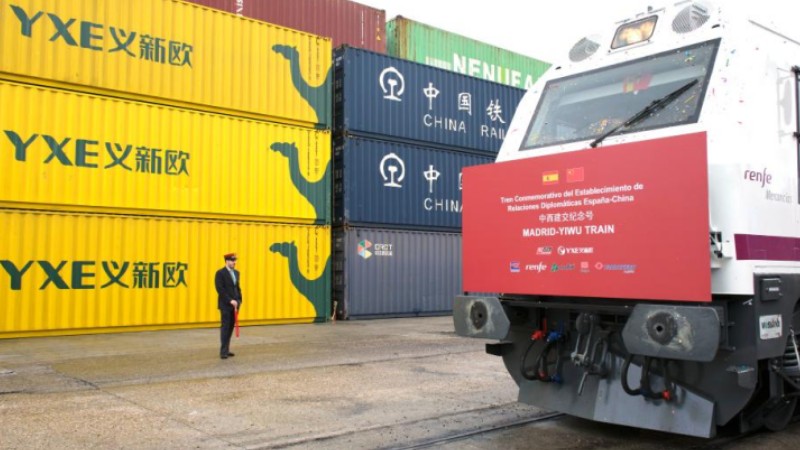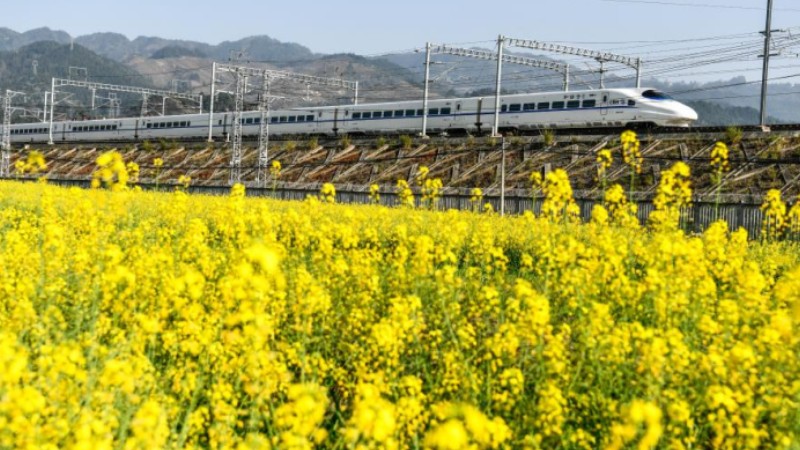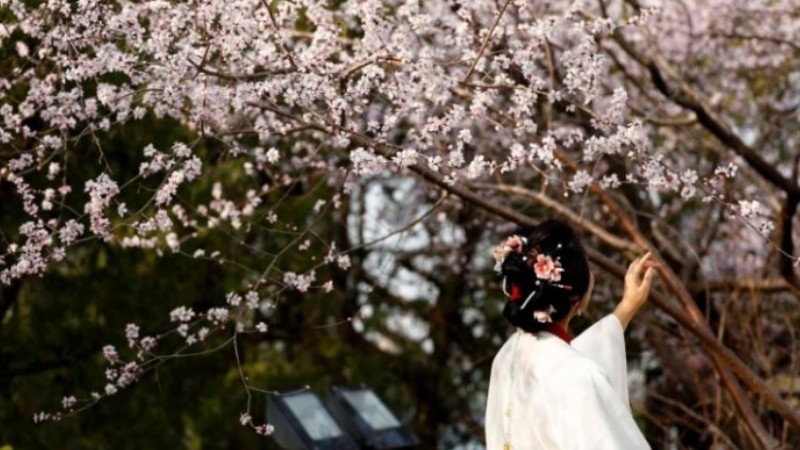Chinese envoy calls for int'l discussion to address AUKUS-related proliferation risks
VIENNA, March 10 (Xinhua) -- A Chinese envoy on Thursday called for advancing open, transparent, inclusive and sustainable intergovernmental discussion at the International Atomic Energy Agency (IAEA) to address the proliferation risks posed by the AUKUS nuclear submarine cooperation.
Li Song, China's permanent representative to the IAEA, said at a meeting of the agency's Board of Governors that the AUKUS nuclear submarine collaboration poses serious nuclear proliferation risks, undermines the international non-proliferation regime, stimulates arms race, and threatens the peace and stability of the Asia-Pacific region.
In September 2021, the United States, Britain and Australia announced the AUKUS deal, under which Washington and London will assist Canberra in acquiring nuclear-powered submarines. China and many other countries have repeatedly expressed concerns over the transfer of high purity uranium involved in the pact.
The essence of the AUKUS cooperation is the transfer of tons of weapons-grade highly enriched uranium from the United States and Britain, both nuclear-weapon states and signatories to the Treaty on the Non-Proliferation of Nuclear Weapons (NPT), to Australia, a non-nuclear-weapon state, Li said.
He added such a "textbook case" of nuclear proliferation violates NPT's objectives and principles, and undermines the IAEA's existing safeguard system and the international non-proliferation regime.
He urged the AUKUS countries to abandon the Cold War mentality and zero-sum mindset, fulfill their international obligations and contribute more to regional peace and stability.
It is up to all IAEA member states to seek proper solutions through intergovernmental discussions regarding whether and how to conduct safeguards on the AUKUS nuclear submarine collaboration, as the matter concerns the interests of all the member states and the integrity and effectiveness of the NPT, he said.
Stressing that China respects the right of all other member states to express their views, Li said that China firmly opposes any country trying to impose its own views on others.
"The U.S., the UK and Australia, while preaching the so-called 'highest non-proliferation standards,' are labeling normal intergovernmental discussions as 'politicized' and rejecting multilateral discussions. Is this what they call the 'rules-based international order?'" he said.
Noting it is essential to keep the intergovernmental discussion going at the IAEA as the AUKUS countries are about to announce concrete plans for their nuclear submarine cooperation, Li said that only true multilateralism can effectively safeguard the integrity and effectiveness of the international non-proliferation regime.
Li called on the IAEA member states to actively participate in the intergovernmental discussion process to help safeguard the global non-proliferation regime.
He said he believes IAEA Director General Rafael Grossi and the agency's secretariat will play their due roles in the process and assist the member states in maintaining and advancing the process.
He also urged the AUKUS countries not to settle on relevant safeguards arrangements with the IAEA secretariat or start nuclear submarine cooperation before a consensus is reached among the agency's member states.
The AUKUS countries should respond to the international community's concerns with concrete actions, fulfill their non-proliferation obligations, and maintain candid and transparent communication with other member states on the basis of equality and mutual respect, he added.
Representatives from Russia and other developing countries spoke in support of China's position on the AUKUS issue at the IAEA board meeting.
Photos
Related Stories
- Iranian president urges IAEA to adopt "professional" approach to Iranian nuclear issue
- IAEA chief to visit Iran for high-level talks
- IAEA completing stationing of missions at Ukraine's nuclear plants
- Efforts to build safety zone around Zaporizhzhia NPP "making headway": IAEA
- Russia, IAEA discuss safety of Zaporizhzhia nuclear power plant
Copyright © 2023 People's Daily Online. All Rights Reserved.









